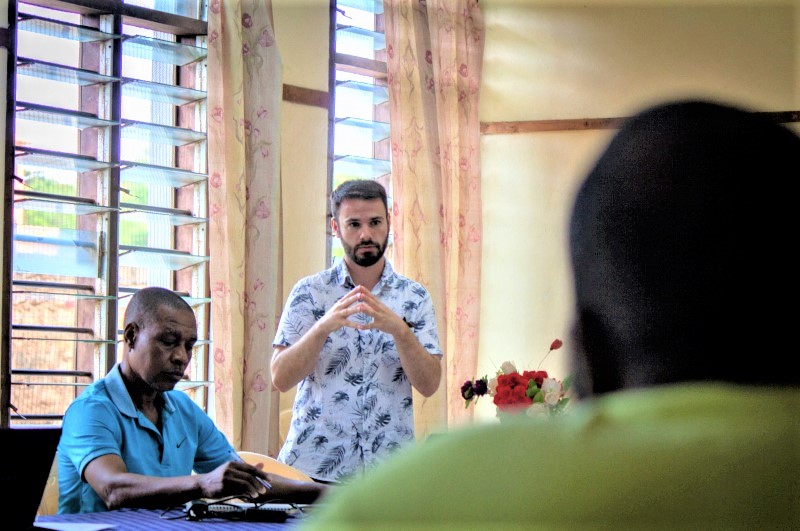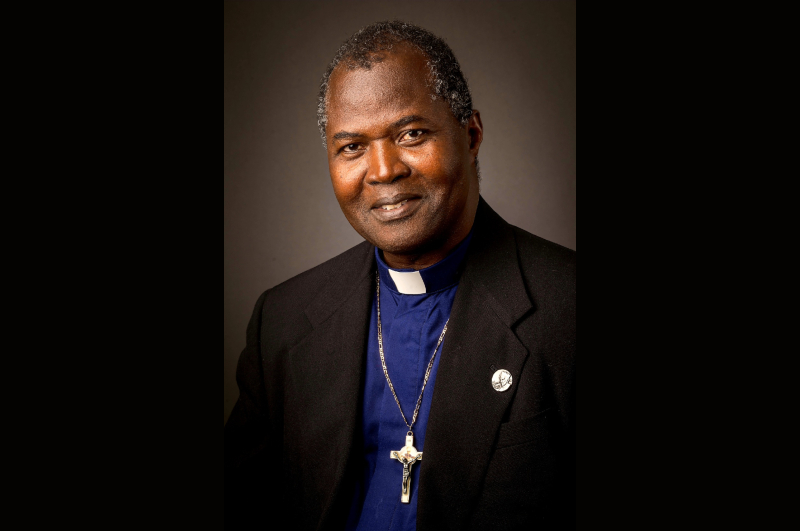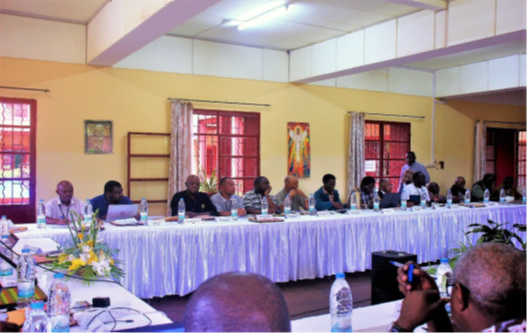

Brothers of the Jesuit Conference of Africa and Madagascar (JCAM), converged in the island country Madagascar in the Indian Ocean for what the JCAM president Fr. Agbonkhianmeghe E. Orobator, SJ, termed as a historical gathering.
Hosted by the Jesuit Province of Madagascar (MDG), the two-day meeting took place at the Saint Ignatius Spiritual Centre in Analamahitsy, Antananarivo, notably the first spiritual centre of the Jesuits in Madagascar which was erected in 1863 with Father Rolland Thoreau as the first director. The first stone of the current house was laid on March 12, 1959.
The meeting offered an opportunity for the Brothers to be immersed in prayer for their vocation and to experience spiritual renewal through the events and activities planned. Prior to the meeting, the steering committee had composed a prayer for the gathering and shared it to be recited as a novena from 23rd to 31st March 2023 in English, French and Malagasy, to pray in solidarity with the Brothers.
The opening Mass of the meeting took place on Wednesday, 29 March 2023, presided over by Fr. Fulgence Ratsimbazafy, SJ, the provincial of Madagascar province. About 40 brothers from 6 provinces were in attendance. In his homily, reflecting on the readings of the day, Fr. Fulgence, invited the brothers to be apostles of liberation. The opening mass laid the ground for the next two days. On day one, following a short prayer led by Brother Mayuma, SJ, from the Jesuit Central Africa Province (ACE), the introduction session was led by Brother O.T. Jonah, SJ, of the Jesuit province of North-West Africa (ANW). In his presentation, Brother Jonah underlined three major points: The role of the Brothers during GC 36; the promotion of vocation of the Brothers; and the method of working during the meeting, which is spiritual conversation. He also invited the Brothers to take advantage of the assembly to network.
Father Provincial Fulgence Ratsimbazafy, SJ, in his welcome speech said that the vocation of the Brother is considered the DNA of the Society of Jesus. He also stated that the objective of the assembly was not only for the life mission of the Brothers but above all, to discern and reflect on the Jesuit life mission as a Conference and as a member of the universal Society. Finally, he affirmed that the Jesuit identity is based on discernment, collaboration, and networking.
Father Fratern Masawe, SJ, Father General’s Assistant for Africa and Madagascar addressed the gathering via a Zoom message, highlighting two fundamental points: The profile of a Jesuit Brother of today, or better, of an African Jesuit of our time, and the identity of a Jesuit Brother. At the end of his presentation, he encouraged the brothers to be like a river, that despite the fear, and the difficulties it goes through, it must flow into the ocean to become part of the ocean.
The afternoon of day one was specially dedicated to the sharing of reflections in eight groups and then giving feedback in the larger group. The Eucharist was celebrated at 6 pm presided by Father John the Baptist Anyeh-Zamcho, SJ, the Socius of JCAM and Conference Formation Assistant.
On the second day, the session opened with a prayer and reflection led by Brother Razafimahefa Jean Denis, SJ, from (MDG), followed by moderated sessions by Brother James Edema, SJ, from (AOR).
This day was marked by a powerful address given by Father Agbonkhianmeghe Orobator, SJ, the President of JCAM who recalled that the March assembly was the follow-up to the International Meeting of Jesuit Brothers in Rome in July 2022, initiated and directed by Fr General. The meeting in Rome underlined the prophetic dimension of the Jesuit life mission incarnated in the Brother. Father Orobator, SJ, in his address, articulated that: The gathering in Madagascar was historic in that it was the first time to hold such an event at the Conference of Africa and Madagascar, strongly appealing to the participants to continue this process of networking and gathering of Brothers. He noted the lack of understanding of what the vocation of brothers consisted of, indicating that the vocation to brotherhood is misunderstood, uneventful, and ambiguous to Jesuits who do not know how to explain or appreciate the specificity of the life of Brothers. From this misunderstanding, they are sometimes tempted to immediately classify them as clerical. He further indicated that the lack of visibility of the Brothers and the clericalist attitude pushes the candidates in brotherhood to ask for a change in their status because of a number of factors, among which are academic qualifications, the lack of visibility compared to priestly ordination, their aptitude in the studies compared to scholastics. Father Orobator, SJ, however, affirmed to the Brothers gathered that the vocation to brotherhood is an authentic vocation, a personal and prophetic call to become a disciple of Christ.
As the gathering came to a close, all participants came together for a final Mass, celebrated by Father Joseph Rabenirina, SJ, from (MDG), Delegate of Father Provincial for the Formation of the Brothers.
A special thank you to the team at St. Ignatius Spiritual Centre, in Analamahitsy Antananarivo, Madagascar, made up of five Jesuits (four fathers, a brother), two nuns from the Saint Joseph of Aosta sisters, and nine lay staff, who daily help people who come to renew themselves, their relationship with God, with other people and also with all creation, hence, to seek and find God in all things.
Related Articles
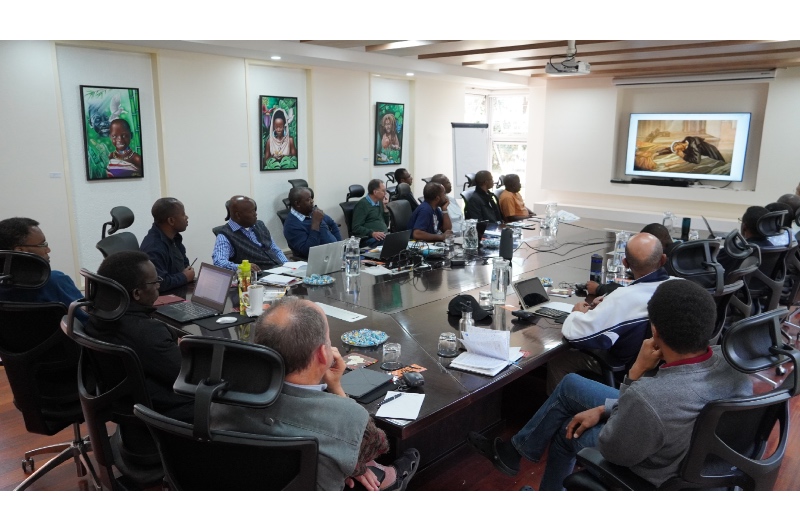


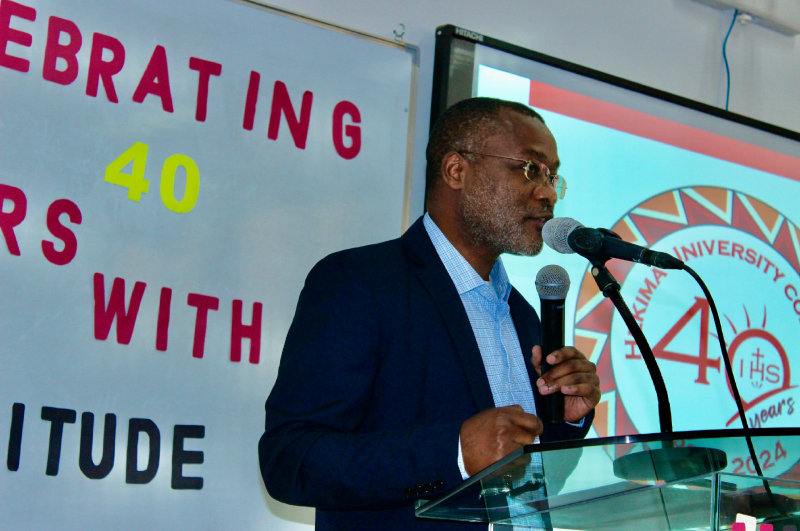
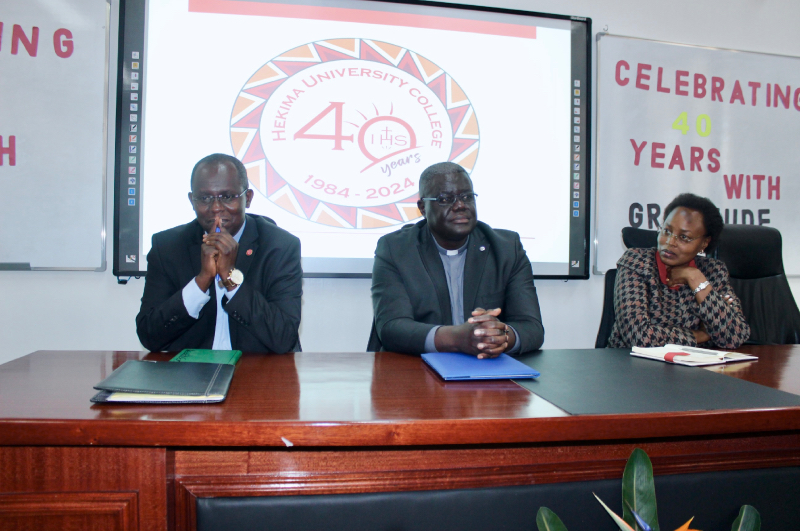
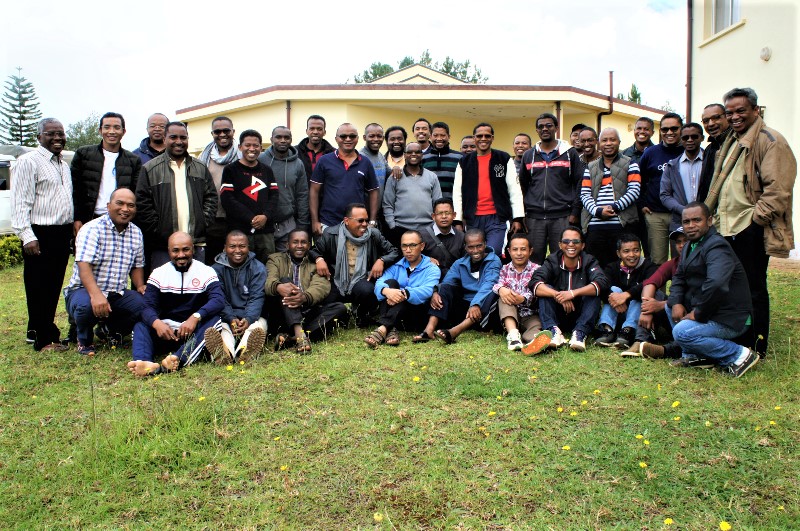
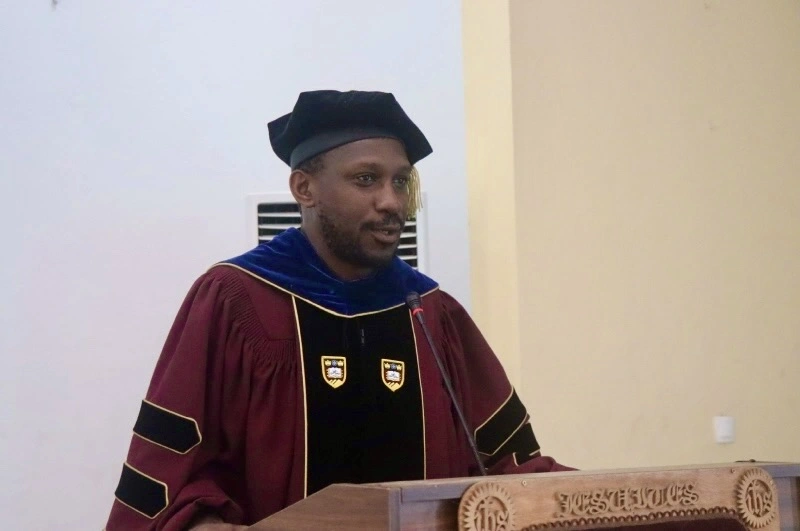
Select Payment Method
Pay by bank transfer
If you wish to make a donation by direct bank transfer please contact Fr Paul Hamill SJ treasurer@jesuits.africa. Fr Paul will get in touch with you about the best method of transfer for you and share account details with you. Donations can be one-off gifts or of any frequency; for example, you might wish to become a regular monthly donor of small amounts; that sort of reliable income can allow for very welcome forward planning in the development of the Society’s works in Africa and Madagascar.
Often it is easier to send a donation to an office within your own country and Fr Paul can advise on how that might be done. In some countries this kind of giving can also be recognised for tax relief and the necessary receipts will be issued.



